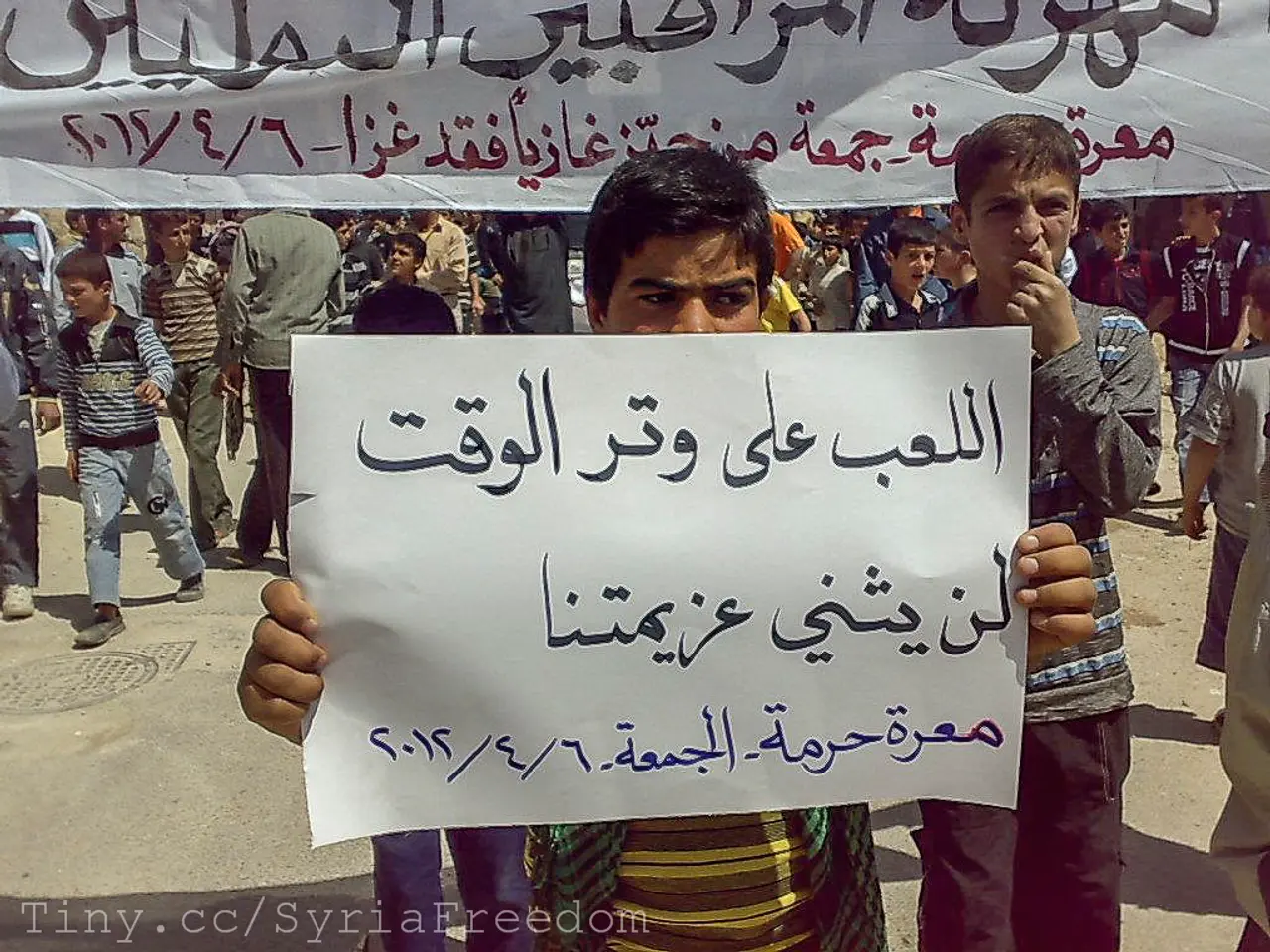Palestinians Unable to Protest Arms Deliveries
The Higher Administrative Court of Hesse has confirmed a decision made by the Administrative Court of Frankfurt am Main regarding the export of military goods to Israel. The initial complaint was made by a Palestinian seeking to prevent the export of spare parts for tanks.
The export licenses were issued by the Federal Office of Economics and Export Control (BAFA) to a German arms company. However, the court did not find any procedural requirements for a decision in an urgent legal protection procedure were met, leading to the rejection of the complaint.
This decision was also confirmed by the 6th Senate of the Higher Administrative Court of Hesse, reinforcing the initial ruling. The court in question, the Higher Administrative Court of Hesse, did not see a state protection obligation that could give the man as a third party the right to appeal.
The Higher Administrative Court of Hesse's decision was not based on the question of whether Israel's military actions in Gaza violate international or human rights law. Instead, it focused solely on the procedural aspects of the case.
It's worth noting that the Administrative Court Order does not provide for the possibility of appeal in this specific case. Therefore, the decision made by the Higher Administrative Court of Hesse is not appealable in the administrative court hierarchy.
The German authority that granted the export licenses for armament parts for tanks to an Israeli weapons company was the Federal Office for Economic Affairs and Export Control (BAFA). The Higher Administrative Court of Berlin (Oberverwaltungsgericht Berlin) also confirmed the decision, further solidifying its legitimacy.
The judges in Kassel, where the Higher Administrative Court of Hesse is located, confirmed the decision of the lower court, adding another layer of confirmation to the initial ruling.
This decision has sparked controversy and debate, with many expressing concerns about the potential impact of arms exports on international relations and human rights. However, the court's focus on procedural aspects and lack of a state protection obligation for the applicant has led to the upholding of the initial decision.
Read also:
- United States tariffs pose a threat to India, necessitating the recruitment of adept negotiators or strategists, similar to those who had influenced Trump's decisions.
- Weekly happenings in the German Federal Parliament (Bundestag)
- Southwest region's most popular posts, accompanied by an inquiry:
- Discussion between Putin and Trump in Alaska could potentially overshadow Ukraine's concerns








